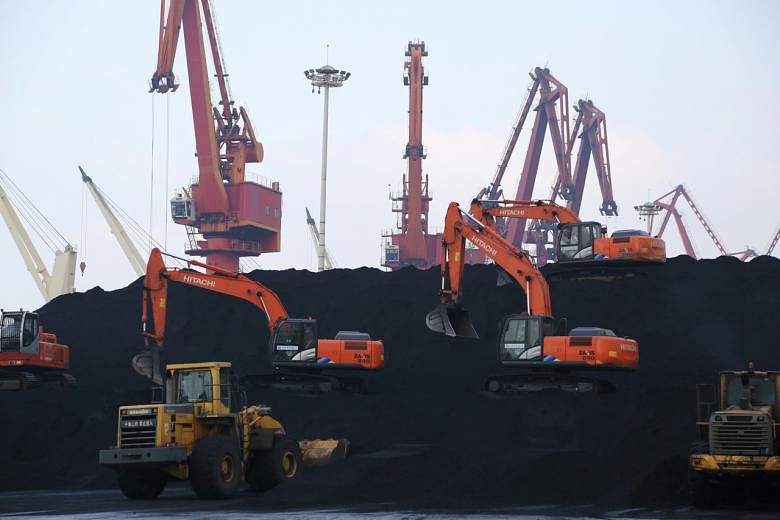BEIJING (REUTERS) - China cut its coal use to 56.8 per cent of energy consumption at the end of 2020, maintaining its target of below 58 per cent, but overall coal consumption continued to rise amid record industrial output and the completion of dozens of coal-fired power plants.
The rapid roll-out of renewable-energy capacity and the growing use of natural gas have helped reduce the share of coal consumption from around 68 per cent over the past decade and 57.7 per cent a year earlier, but overall coal use has not peaked.
Coal consumption in the world's biggest coal user and greenhouse gas emitter grew 0.6 per cent last year, the fourth consecutive increase, the National Bureau of Statistics said on Sunday (Feb 28).
The share of "clean" energy - including natural gas, hydropower, nuclear and wind power - rose 1 percentage point to 24.3 per cent of consumption, it said.
Energy consumption increased by 2.2 per cent to 4.98 billion tonnes of standard coal equivalent last year, with crude oil demand growing by 3.3 per cent and natural gas by 7.2 per cent.
China has pledged to halt the rise in its carbon emissions before 2030, with targets to control energy consumption, especially coal-burning, and improve energy efficiency.
The amount of carbon dioxide (CO2) China emitted per unit of economic growth fell 1 per cent last year, the agency said in a statement.
This "carbon intensity" has fallen about 19.2 per cent since 2015, according to Reuters calculations based on official data, beating the five-year target of an 18 per cent decline.
But China appears to have missed its target for cutting energy intensity for the period: It fell about 13.7 per cent, according to Reuters calculations based on official data, less than the targeted 15 per cent.
The world's second-biggest economy began to recover from the Covid-19 pandemic in the second half of 2020. By the end of the year, output of crude steel and plate glass had reached record highs, and the country processed a record amount of crude oil.
"Some local governments found the energy-control targets limited their industrial and economic development. By launching some mega-sized projects, they are struggling to meet the energy efficiency goal," said Mr Zou Ji, China president of the Energy Foundation, a non-government research group.

